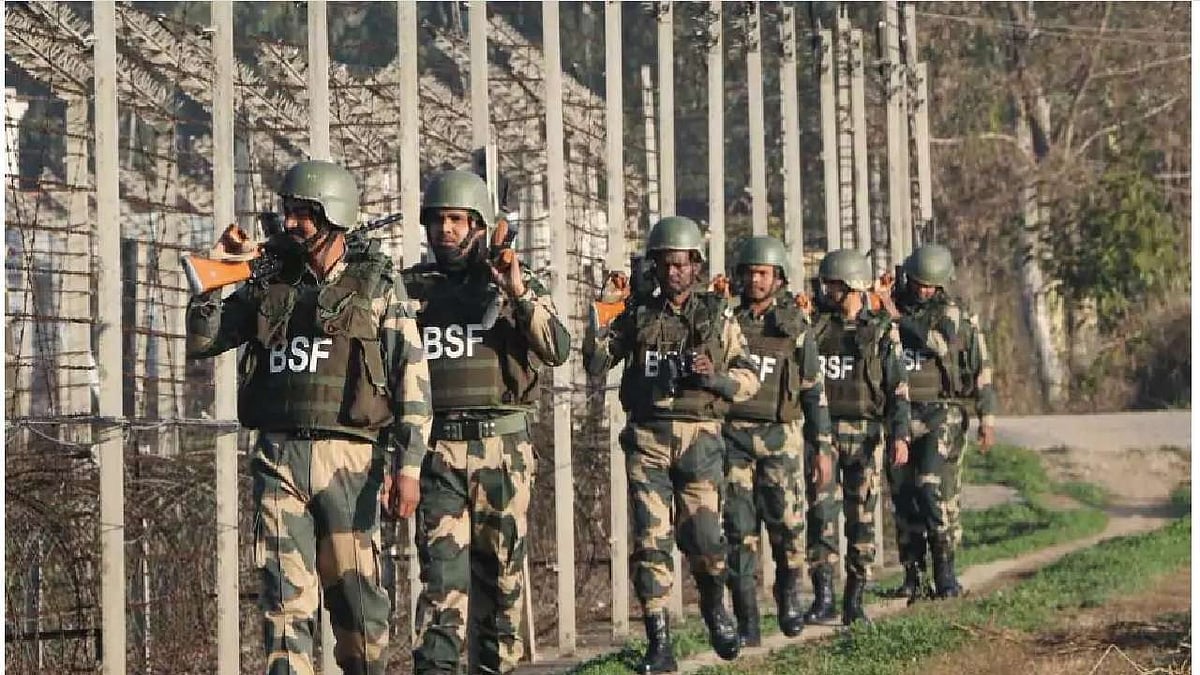The home ministry’s decision to extend the area of jurisdiction of the Border Security Force (BSF) in Punjab, Bengal and Assam up to 50 kms from India’s international border with Pakistan and Bangladesh has created a political controversy in Punjab. This allows the BSF personnel to search, arrest and seize goods in roughly half the state of Punjab. The ruling Congress and the opposition Shiromani Akali Dal see this as tantamount to bringing half the state under the Centre’s rule. Chief Minister Charanjit Singh Channi and his deputy Sukhjinder Singh Randhawa have strongly condemned the move.
It is a measure of the factionalism in the Congress that former Chief Minister Amarinder Singh thought it necessary to welcome the decision. While Bengal is yet to react, no fireworks are expected in Assam, ruled by the BJP. Section 139 of the BSF Act, 1968, allows the Centre to change the area of the BSF’s jurisdiction in border states subject to the condition that it should be endorsed by both Houses of Parliament.
Seen against this backdrop, few will find fault with the home ministry’s decision. The ostensible reason for this step is the increase in the smuggling of drugs and weapons, including drones, across the international border. In that case, are the three states the only ones where the illegal activities warranting BSF’s larger presence have been on the rise?
It was only recently that 3,000 kg of heroin was seized from the Mundra port, owned by the Adani group in Gujarat’s Kutch district. It was described as the world’s single largest seizure of drugs. There were reports that a similar cargo had passed through the port without the notice of the narcotics control bureau. Surprisingly, the home ministry reduced the area of the BSF’s jurisdiction in Gujarat from 80 kms to 50 kms. There has been a reduction in the jurisdiction in Manipur, Mizoram, Tripura, Nagaland and Meghalaya also. Needless to say, these double standards beggar belief.
It was for very considered reasons that the founding fathers of the Constitution had entrusted the states with law and order. The Centre can intervene only if there is a breakdown of law and order in the state as reported by the governor with substantive evidence. As mentioned, the Centre is within its rights to increase the jurisdiction of the BSF but it should have done it in consultation with the state governments, particularly when they are ruled by political parties different from the one in power at the Centre. As the protest in Punjab shows, no such consultation was done.
Whether it is the BSF or the Indian Army, they always work in tandem with the state authorities. There has never been a case where a state police prevented either the BSF or any other paramilitary force from carrying out their duties. The heavens would certainly not have fallen if the Centre had taken the states concerned into confidence before taking the decision.
The controversy has arisen at a time when Prime Minister Narendra Modi has completed 20 years in office, first as chief minister of Gujarat and for the last seven years as prime minister. No one in India has better experience than him as both PM and CM. It was believed that he would not allow Centre-state relations to deteriorate, given his vast experience. He might have opposed certain Central policies like GST and Aadhaar card but once he became Prime Minister, he became their greatest votaries. If anything, it showed his willingness to correct himself.
Modi’s concept of cooperative federalism, which he has been advocating ever since he became Prime Minister, has a lot to commend itself. It envisages the Centre and the states working in concert and tackling all issues in a spirit of give and take. Of late, he has also been advocating what he calls competitive, cooperative federalism, under which the states compete with one another to bring the maximum benefit of progress to their people.
It is a different matter that during the last seven years, there were many Centre-state issues which were ‘resolved’ not in the best interest of the states concerned, like J&K and Delhi. As a result, one state has turned into two Union Territories and in another, the governor has become more powerful than the elected chief minister. It will be in the best interest of the nation if the Centre reaches out to the three states and resolves the differences in a mutually agreed manner.




